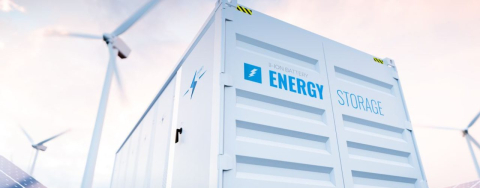Ancillary services are specialised services provided by generation units, industrial consumers and energy storage facilities to the transmission system operator (TSO) or distribution system operators (DSO) to ensure the stable, safe and efficient operation of the power system.
The main objectives of ancillary services:
- Maintaining the balance between energy production and consumption
- Stabilising the voltage and frequency in the grid
- Managing power reserves and limiting the effects of failures
Ancillary services are divided into
1. Balancing and frequency control services. These are used to maintain the balance between energy supply and demand and to stabilise the frequency (50 Hz in Europe).
Power reserve – used to quickly increase or decrease energy generation:
- Primary reserve (FCR – Frequency Containment Reserve) – automatic response of power plants to frequency deviations.
- Secondary reserve (aFRR – Automatic Frequency Restoration Reserve) – automatic frequency control by units controlled by the operator.
- Tertiary reserve (mFRR – Manual Frequency Restoration Reserve) – manual intervention by generators at the operator's request.
Demand Side Response (DSR) services – reduction of energy consumption by consumers on the operator's instructions in order to stabilise the system.
2. Voltage and reactive power control service. These are used to maintain adequate voltage lesvels in the grid.
- Voltage control – power plants and other generating units adjust reactive power generation to keep the voltage within acceptable limits.
- Reactive power compensation – installations in the grid (e.g. capacitor banks, reactors) help manage reactive power flows.
3. System security management services. These include measures to prevent failures and restore normal system operation.
- Black Start – the ability of generating units to start up independently after a total power system failure.
- Emergency power reduction – reduction of production or consumption to avoid grid overloads.
Ancillary services and the energy market
- The transmission system operator (e.g. PSE in Poland) buys ancillary services from suppliers (power plants, DSR customers, energy storage facilities) through contracts or auctions.
- The introduction of renewable energy sources (RES) increases the demand for flexible ancillary services, as RES generate energy in an unstable way.
- The development of DSR and energy storage increases system efficiency and reduces the need for expensive reserves in conventional power plants.
Summary
Ancillary services are crucial for the security and stability of the power grid. They include frequency and voltage control as well as reserve management and emergency interventions. Their importance is growing with the increasing share of renewable energies and the development of smart grids.

